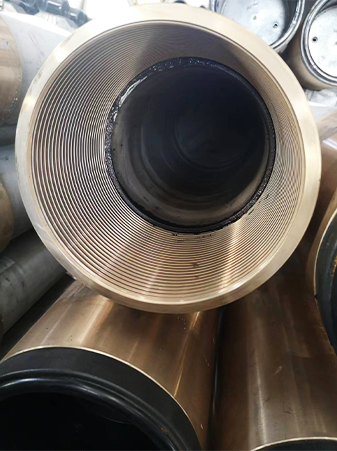- Afrikaans
- Albanian
- Amharic
- Arabic
- Armenian
- Azerbaijani
- Basque
- Belarusian
- Bengali
- Bosnian
- Bulgarian
- Catalan
- Cebuano
- Corsican
- Croatian
- Czech
- Danish
- Dutch
- English
- Esperanto
- Estonian
- Finnish
- French
- Frisian
- Galician
- Georgian
- German
- Greek
- Gujarati
- Haitian Creole
- hausa
- hawaiian
- Hebrew
- Hindi
- Miao
- Hungarian
- Icelandic
- igbo
- Indonesian
- irish
- Italian
- Japanese
- Javanese
- Kannada
- kazakh
- Khmer
- Rwandese
- Korean
- Kurdish
- Kyrgyz
- Lao
- Latin
- Latvian
- Lithuanian
- Luxembourgish
- Macedonian
- Malgashi
- Malay
- Malayalam
- Maltese
- Maori
- Marathi
- Mongolian
- Myanmar
- Nepali
- Norwegian
- Norwegian
- Occitan
- Pashto
- Persian
- Polish
- Portuguese
- Punjabi
- Romanian
- Russian
- Samoan
- Scottish Gaelic
- Serbian
- Sesotho
- Shona
- Sindhi
- Sinhala
- Slovak
- Slovenian
- Somali
- Spanish
- Sundanese
- Swahili
- Swedish
- Tagalog
- Tajik
- Tamil
- Tatar
- Telugu
- Thai
- Turkish
- Turkmen
- Ukrainian
- Urdu
- Uighur
- Uzbek
- Vietnamese
- Welsh
- Bantu
- Yiddish
- Yoruba
- Zulu
Extension Coupling for Well Casing Installation and Maintenance Techniques in Oil and Gas Industry
Well Casing Extension Couplings Enhancing Well Integrity and Efficiency
Well casing extension couplings play a crucial role in the drilling and oilfield industry, particularly in enhancing the structural integrity of boreholes and optimizing the extraction process. As the demand for oil and gas continues to grow, it has become increasingly vital to ensure that wells are constructed to withstand the pressures and challenges inherent to deep drilling. This article delves into the importance, design, and application of well casing extension couplings, shedding light on their contributions to operational efficiency and safety.
Understanding Well Casing and Couplings
Well casing refers to the series of tubular structures that are inserted into the borehole to maintain its stability, prevent the collapse of the surrounding earth, and protect groundwater from contamination. Couplings, on the other hand, are used to connect sections of casing pipe and can vary in dimension and material depending on the specific needs of the well. Couplings must withstand considerable pressures and provide a leak-proof connection to ensure the overall integrity of the well structure.
The Role of Casing Extension Couplings
Casing extension couplings are specialized coupling mechanisms that allow for the extension of casing strings. When drilling wells, operators sometimes encounter unexpected geological formations or need to reach deeper reservoirs. In such cases, existing casing might not be sufficient, necessitating an extension solution. Casing extension couplings provide a reliable way to extend the well casing without compromising the structural integrity of the entire system.
These couplings ensure that the extension maintains a continuous flow path and minimizes turbulence, which is critical for effective fluid flow during drilling and extraction operations. By enabling the seamless addition of casing lengths, extension couplings facilitate deeper drilling operations, thereby increasing the potential for resource recovery.
Design Considerations
The design of well casing extension couplings is a complex process that requires careful consideration of various factors. Key aspects include
well casing extension coupling

1. Material Selection The choice of materials for both the casing and the coupling is significant. Typically, carbon steel or high-strength alloys are used due to their durability and ability to withstand high pressure and temperature conditions.
2. Pressure Ratings Casing extension couplings are designed to handle specific pressure ratings based on the operational requirements of the well. The coupling must be rated appropriately to ensure it can withstand potential stresses without failure.
3. Corrosion Resistance Given the harsh environments in which they operate, couplings must also be resistant to corrosion. Coatings or special alloy compositions may be employed to enhance the lifecycle of the couplings.
4. Connection Type The design of the connection between the casing and the coupling may vary—common methods include threaded connections, welded joints, and slip-on designs. Each method has its advantages and is chosen based on the specific operational needs.
Applications and Benefits
The primary application of well casing extension couplings is in oil and gas drilling, but they can also be beneficial in geothermal applications and water wells. The advantages of using coupling extensions include
- Increased Depth Access Operators can reach deeper reservoirs, maximizing resource extraction potential. - Improved Well Integrity Properly designed and installed couplings enhance the overall integrity and reliability of the well structure. - Cost-Effectiveness Extending existing casing rather than drilling a new well can save significant time and costs associated with drilling operations. - Safety Assurance The use of high-quality couplings minimizes the risk of casing failures, which can lead to serious safety hazards and environmental issues.
Conclusion
In conclusion, well casing extension couplings are integral to modern drilling operations, allowing for deeper exploration while maintaining well integrity and operational efficiency. As the energy industry continues to evolve and expand into more challenging environments, the role of advanced coupling technologies will become even more prominent, underscoring the importance of innovation in resource extraction methods. By focusing on robust design and high-performance materials, the industry can ensure sustainable and effective resource management into the future.
-
Tubing Pup Joints: Essential Components for Oil and Gas OperationsNewsJul.10,2025
-
Pup Joints: Essential Components for Reliable Drilling OperationsNewsJul.10,2025
-
Pipe Couplings: Connecting Your World EfficientlyNewsJul.10,2025
-
Mastering Oilfield Operations with Quality Tubing and CasingNewsJul.10,2025
-
High-Quality Casing Couplings for Every NeedNewsJul.10,2025
-
Boost Your Drilling Efficiency with Premium Crossover Tools & Seating NipplesNewsJul.10,2025







